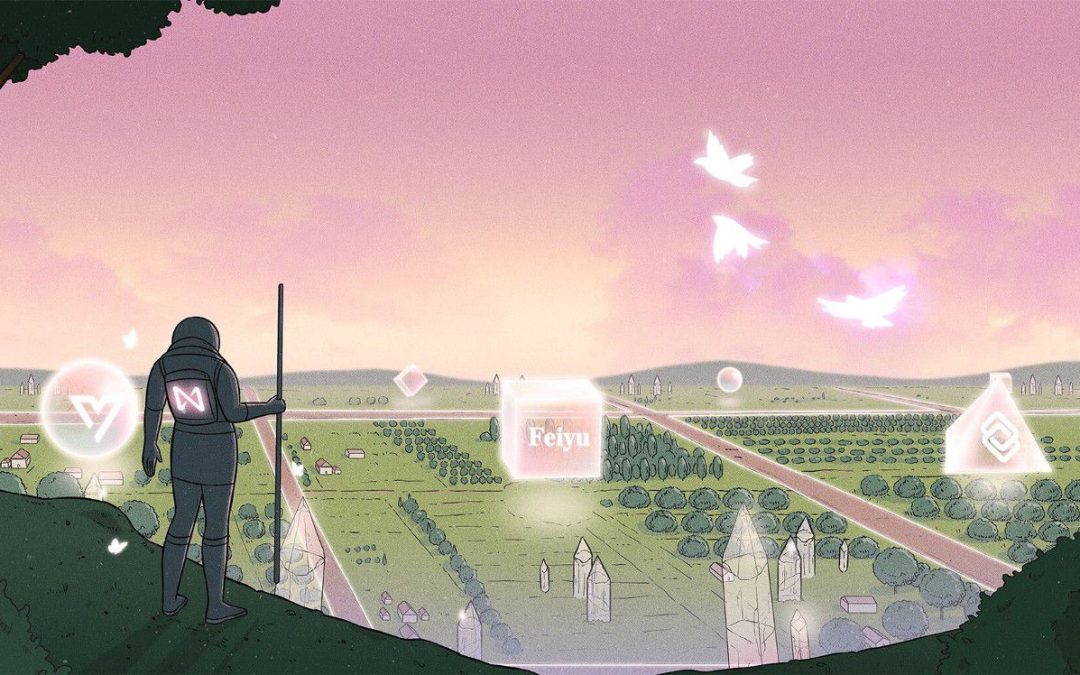On many levels, 2021 was an eventful and exciting year on the Open Web gaming front, and Web 3 gaming’s momentum will continue into 2022 and beyond. New developments are happening all the time, gaining traction with gamers, and extending the accessibility of blockchain-based gaming. Here are three trends, in particular, that are worth highlighting, based on recent activity on the Near Blockchain.
1. Play-to-earn gaming
This year, OP Games, a Web 3 gaming arcade platform built on Near, changed how users buy, own and trade in-game assets. Unlike typical AAA games, which are produced by major publishers, and mobile games, which often sandbox digital assets on their platforms, OP Games is turning them into collectible non-fungible tokens (NFTs), which players can own outside of the OP Games platform.
OP Games also brought fractionalized NFTs to its gaming arcade, which allows players and fans to co-own the projects they love. If the game becomes popular and long-lasting, players can also have input into how it evolves through the game’s decentralized autonomous organization (DAO). In this way, the OP Games ecosystem creates a Kickstarter for games that can just keep on going for as long as the game’s DAO exists. By late 2022, OP Games aims to offer 500 play-to-earn games on OP Arcade. A lofty goal, but one that will help revolutionize gaming, whether it’s AAA-style titles or simpler mobile games.
Another Near app, Vorto Network, is taking a similar approach to its online marketplace. By using a crypto wallet, players can buy in-game items and digital assets. Vorto Network’s Hash Rush, a real-time strategy (RTS) game, will launch in January 2022, giving players an immersive experience inside the Hermeian galaxy, where they compete, build and exchange goods through the title’s various levels. The game is a prime example of the play-to-earn model that is gaining prominence on Web 3, creating a digital goods economy for players.
2. Gaming meets social media
Games on Near are also functioning as hybrid social media platforms. In Near Lands, a pixelated land-based open-world game, players can participate as much for the sense of community as the gameplay. While going on adventures through the game’s open world, players can build characters and items.
Reality Chain also explores this concept with its multi-chain, social gaming metaverse, which recently launched on Octopus Network. Reality Chain allows players to level up their social and gaming lives through a combination of non-immersive, multiplayer 2D and 3D experiences.
3. Bringing NFTs to gaming
In 2021, the crypto industry saw $2 billion in investment earmarked for the NFT gaming sector. On Near, a number of developers are creating NFT games across a variety of styles and genres.
At the end of 2021, the Inite platform earned a $50,000 grant for its unique take on NFT gaming. A Metaverse experience, Inite is a motivational-based game focused on the scientific method, in which players get NFTs for doing daily tasks that help boost their creativity, improve individual cognitive skills and enhance productivity.
On the opposite end of the spectrum is Battlemon, a competitive third-person shooter. Built on Unreal Engine 5 and the Near blockchain, Battlemon pits players against each other in one-on-one or five-on-five battles, and each character is a unique, customizable NFT available to rent.
It’s only the dawn of blockchain gaming
It’s still early days for the world of blockchain gaming. And with the Near ecosystem only a year old, this is especially true. Much excitement awaits gamers and crypto’s early adopters, especially as the world moves toward mass adoption. Near’s one-of-a-kind sharded platform, which will make for super-fast speeds, low costs and carbon neutral sustainability, will help lead the way.














